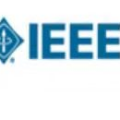High-assurance security systems require strong isolation from the untrusted world to protect the security-sensitive or privacy-sensitive data they process. Existing regulations impose that such systems must execute in a trustworthy operating system (OS) to ensure they are not collocated with untrusted software that might negatively impact their availability or security. However, the existing techniques to attest to the OS integrity fall short due to the cuckoo attack. In this paper, we first show a novel defense mechanism against the cuckoo attack, and we formally prove it. Then, we implement it as part of an integrity monitoring and enforcement framework that attests to the trustworthiness of the OS from 3.7x to 8.5x faster than the existing integrity monitoring systems. We demonstrate its practicality by protecting the execution of a real-world eHealth application, performing micro and macro-benchmarks, and assessing the security risk.
翻译:高稳定性安全系统需要与不受信任的世界紧密隔绝,以保护它们处理的安全敏感或隐私敏感数据。现有的条例规定,这些系统必须在可靠的操作系统(OS)中实施,以确保它们不会与可能对其可用性或安全产生不利影响的不受信任的软件合用同一地点。然而,证明OS完整性的现有技术由于库库袭击而落后。在本文件中,我们首先展示了一种防止库库袭击的新防御机制,我们正式证明了这一点。然后,我们作为廉正监测和执行框架的一部分实施该系统,以证明OS从3.7x到8.5x之间的可靠程度比现有的完整性监测系统要快。我们通过保护现实世界电子健康应用程序的实施、执行微观和宏观基准并评估安全风险,来证明其实用性。




